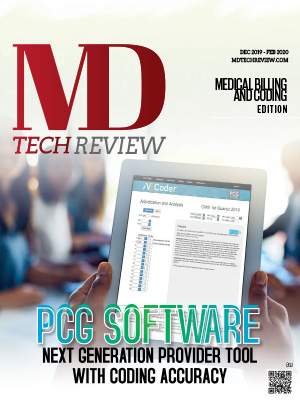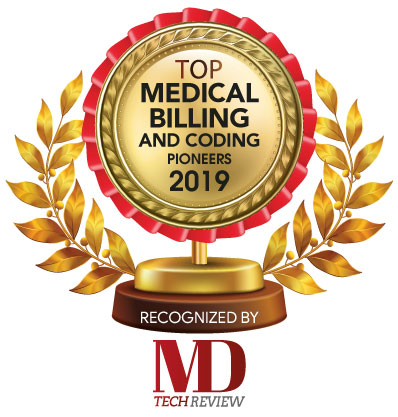Be first to read the latest tech news, Industry Leader's Insights, and CIO interviews of medium and large enterprises exclusively from MD Tech Review
Several Trends Driving the Evolution of Care in 2021
 Andria Jacobs, RN, MS, CEN, CPHQ, Chief Operating Officer, PCG Software
Andria Jacobs, RN, MS, CEN, CPHQ, Chief Operating Officer, PCG SoftwareThe emergence of the 2021 Price Transparency rule that goes into effect January 1 will also be revealing as every hospital operating in the US will now “be required to provide clear, accessible pricing information online about the items and services they provide.”
In estimates provided to patients, according to the Waystar survey, 54% found their estimated bills to be somewhat correct or not correct at all. As patients have greater responsibility for out-of-pocket costs, they will exert more choice in their health care decisions based on costs.
Then there’s the fact that physicians, NPPs and health care professionals are facing an 11.5% cut in reimbursement heading into 2021. It is not on all services. The office-based CMS Evaluation and Management services are increasing but in order to balance the increases, some providers will have major cuts. This in a year when many practices saw a more than 60% decrease in revenue. When there is a single payer there will not be opportunities to negotiate higher pay. This begs us to ask several questions:
• Who will represent the health care providers in negotiations with a single payer?
• What will happen to the major and minor health care plans that take care of millions?
Less administrative cost and a single payer may not be a prize.
With CMS continuing to play hardball regarding claims, medical practices of all sizes should do their part and look to a coding and billing intelligence platform that empowers medical practices with the same claims intelligence, tools and rules engine that the payors use. PCG’s iVECoder™ is an intelligence platform for medical practices of all sizes and specialties that offers just that. Through the cloud-based software subscription, providers can now ensure even the most complex claims are clean and accurate before they are sent to the payor – using the same Virtual Examiner® claims review engine that healthcare payors worldwide have been using for more than 25 years to determine which provider claims to approve or deny. By reporting claims accurately from the start, healthcare providers are better equipped to reduce the incidence of claims denials so they can get paid faster in order to remain financially competitive.
Then there’s the fact that physicians, NPPs and health care professionals are facing an 11.5% cut in reimbursement heading into 2021. It is not on all services. The office-based CMS Evaluation and Management services are increasing but in order to balance the increases, some providers will have major cuts. This in a year when many practices saw a more than 60% decrease in revenue. When there is a single payer there will not be opportunities to negotiate higher pay. This begs us to ask several questions:
• Who will represent the health care providers in negotiations with a single payer?
• What will happen to the major and minor health care plans that take care of millions?
Less administrative cost and a single payer may not be a prize.
With CMS continuing to play hardball regarding claims, medical practices of all sizes should do their part and look to a coding and billing intelligence platform that empowers medical practices with the same claims intelligence, tools and rules engine that the payors use. PCG’s iVECoder™ is an intelligence platform for medical practices of all sizes and specialties that offers just that. Through the cloud-based software subscription, providers can now ensure even the most complex claims are clean and accurate before they are sent to the payor – using the same Virtual Examiner® claims review engine that healthcare payors worldwide have been using for more than 25 years to determine which provider claims to approve or deny. By reporting claims accurately from the start, healthcare providers are better equipped to reduce the incidence of claims denials so they can get paid faster in order to remain financially competitive.



